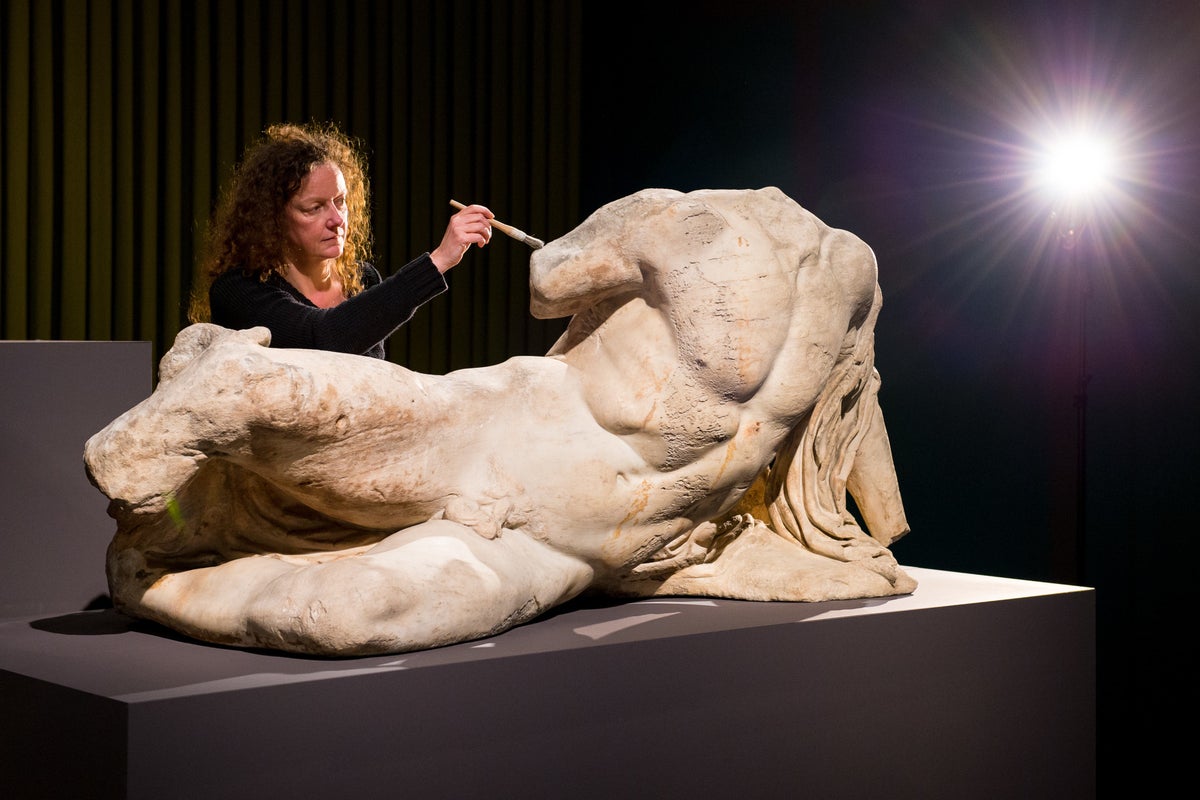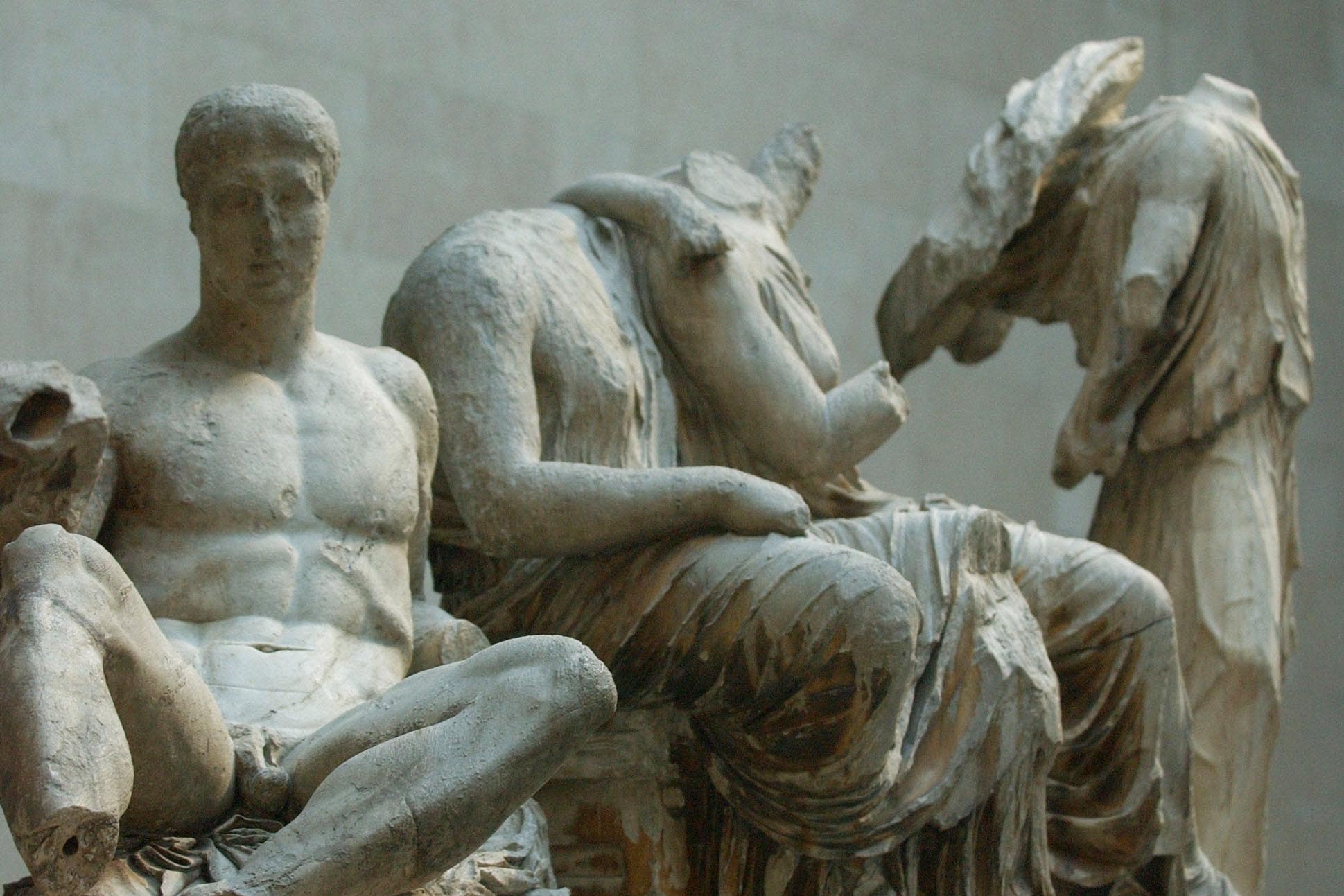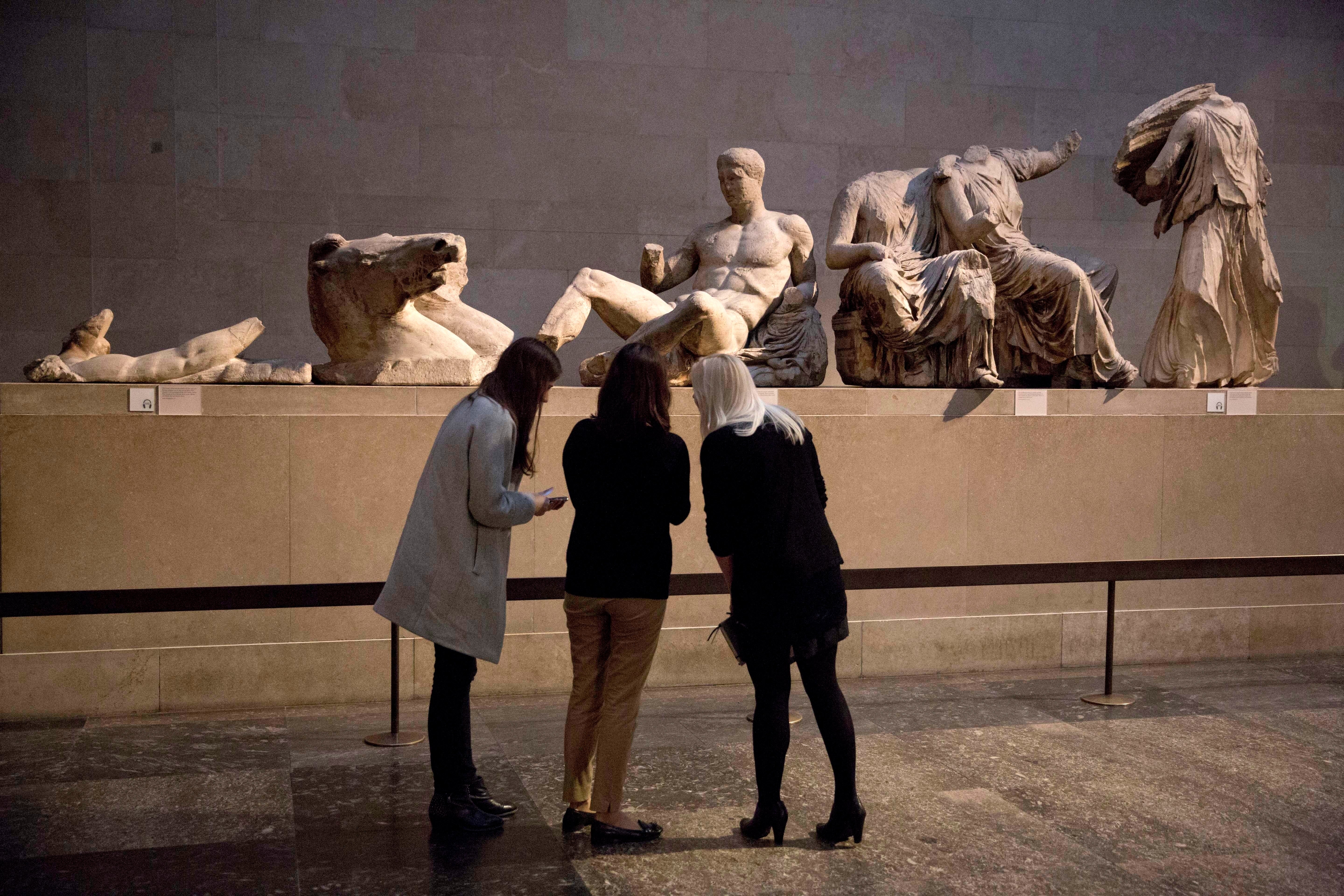
Secret talks to return the Elgin Marbles to Greece have faltered just as they were approaching agreement, it’s been revealed.
Greek and British negotiators have made clear they cannot agree details on the future of the collection that once decorated the Parthenon in Athens.
Earlier this month the British Museum said it was in “constructive discussions” over the possible return of the marbles to Greece after 200 years.

The 2,500-year-old sculptures, some of the greatest treasures of antiquity, were bought by the British government in the early 19th century after Lord Elgin removed them when he was British ambassador to the Ottoman Empire.
They include statues of Greek gods and carved frieze panels depicting battling centaurs.
The talks, between Greek prime minister Kyriakos Mitsotakis and British former chancellor George Osborne, now the chairman of the British Museum, began in November 2021.
Last month Greek newspaper Ta Nea said the talks were “90 per cent” complete, citing “well-placed” sources, and it was reported separately this month that the sides were “closing in” on a deal.
The plan was that some of the antiquities – whose future has been hotly disputed for decades – would return to Athens temporarily, in exchange for other ancient treasures.
But now officials on both sides have reined in expectations that a deal is imminent and sources have told The New York Times it remains much further away than thought.
The British Museum has around 250ft of carved stone that once wrapped around the Parthenon. An insider to the talks said Greece wanted it all back for 20 years, at least.
They said Mr Mitsotakis hoped that, after 20 years, the agreement would be extended, and the Greek side hoped to negotiate the return of the remaining sculptures at a later date.

In return for the frieze, Greek museums would supply Britain with a rotating selection of priceless artefacts, some of which had never left Greece.
The British Museum reportedly wants a deal involving returning a smaller portion of the frieze, as well as carvings of gods and centaurs, as a short-term loan.
Once Greece returned those artefacts to London, more would be sent to Athens to replace them, and over time, the number of artefacts sent to Greece would increase, reflecting growing trust between the two sides, the insider added.
Under UK law, the museum cannot remove items from its collection unless they are “unfit to be retained”.
The source said they did not expect more progress until after Greek parliamentary elections later this year.
The British government said last year it does not plan to change the law to allow a full restitution of the marbles.
Last week, Michelle Donelan, Britain’s culture secretary, said the Parthenon Sculptures "belong here in the UK" and should not be returned to Greece.
Returning the artefacts would open a “complete can of worms”, she warned.
A Greek opposition culture spokeswoman says she would oppose any deal that did not make clear the marbles were Greece’s rightful property.







